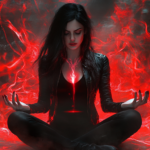
“Greek Accounts of the Vrykolakas” by D. Demetracopoulou Lee from The Journal of American Folklore, No. 54 (1941)
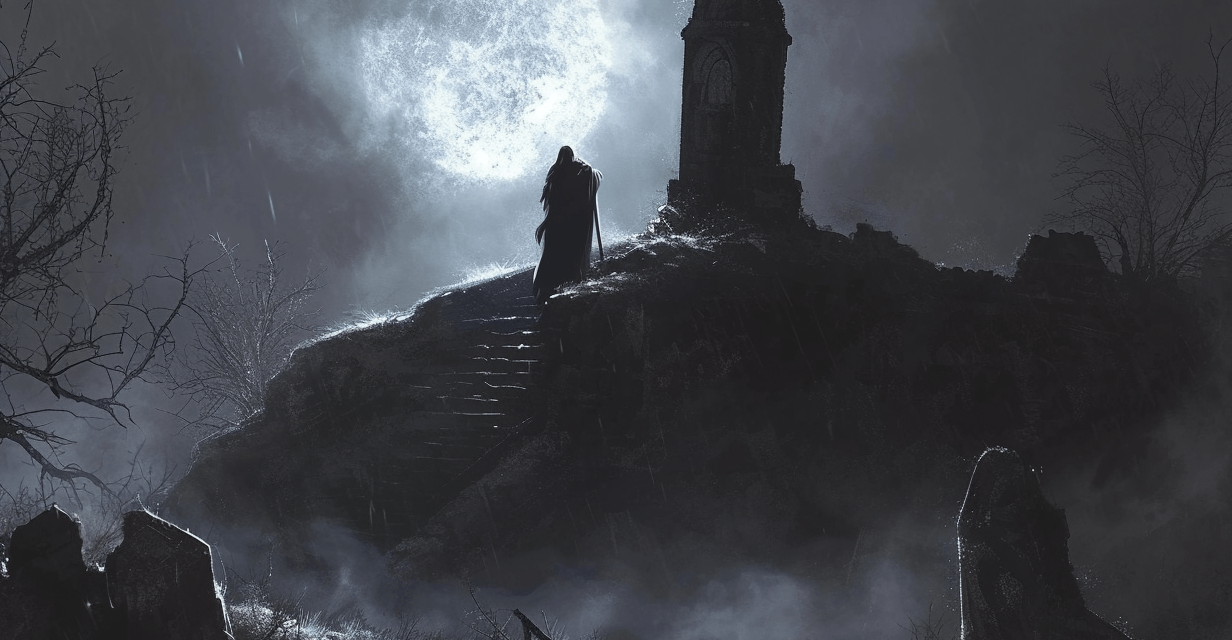
“Greek Accounts of the Vrykolakas”
by D. Demetracopoulou Lee
from The Journal of American Folklore, No. 54 (1941)
The vrykolakas is one of several non-human beings which people the lives of Greek peasants and bring them fear. I use the term non-human rather than the more common supernatural, because these beings are often the very essence of nature to the extent of being vulnerable through natural means. The vrykolakas himself can be killed by the stroke of lightning, and consumed by fire.
The vrykolakas is the animated corpse which can leave its grave every day except Saturday. He can be seen mainly by the alaphroiskiotoi, the light-shadowed; but he may also be visible to the ordinary man. There is no agreement in my texts as to the form of the vrykolakas; apparently, though he starts out as a dead human body, he can change his form, or even enter the body of an animal. In quoting accounts of the vrykolakas alone, I draw a line which was not firmly drawn by my informants. The attitude toward all non-human beings was the same, in general, and overshadowed distinctions of species. All non-human beings were generally referred to as stoechoia (spirits, non-human beings). At times an informant began with the announced intention of telling me about neraides (fairies, water-fairies), and ended by recounting an experience with a vrykolakas; this, in spite of the fact that the neraides were golden-haired and seductive, and were fearfully coveted by the young men. This confusion of the different non-human beings is common principally among my Arcadian informants; and it is from the Arcadians that I got the most vivid accounts of such beings, and for whom such experiences were most immediate. The accounts which I got from the Asia Minor Greeks were less personal, more in the nature of something heard and talked about, than of something felt.
The Arcadians made no clear distinction between what we would call fact and fiction, or history and folklore, in the stories which they told me. The accounts they gave of contact with non-human beings they referred to as gegonata (events) or anecdota. They considered them accounts of out-of-the-way events, and among them they included the strange tale of the old shepherd who called the young prankster’s bluff and shot him to death, and the tale of the mule who wandered into the unused chapel, a tale which I include here to show the attitude of the informants.
I give below translations of accounts of the vrykolakas, as recounted to me by the individual informants. All except one of the accounts came from Arcadians, principally men. These men have been in the United States for many years, and can speak English adequately. They sometimes feel bound to doubt their stories; in spite of this, their stories carry conviction.
(Antonios, Cambridge, Mass. 1934)
I.
Don’t think these things funny. They are true. They happen. Many see them. I haven’t seen any because I haven’t happened to. Our village was on the mountain. One man’s house was on a little mound or hillock, and it overlooked the other houses; and he could see the neraides from there.
The vrykolakas is the devil. The people hear about him in church and are afraid. No, I never heard of a vrykolakas drinking blood. These tempters (paraphrase for devils), whom people call vrykolakes, kill people. That’s why people fear them. When they said to us that in such and such a place a stoechoio comes out, whew! we would never go that way; we feared those beings.
My father would see these beings when he walked at night with my mother; my mother saw nothing.
He looks like a man, like a dog, like anything. He comes out at night. When people die of a contagious disease, and no one will go near them and they bury them without a priest, without anything, they become vrykolakes.
I forgot to say that he recited church pieces on the way. Otherwise they would have taken him.
This man was in a house once. And there were beams high up across the ceiling. And he would say to the master of the house, “Look up, there is a vrykolakas sitting on the beam.” And he would tell him where he is sitting, and this man would give a blow with a stick, and he would say to him, “Have I hit him?” The man would say to him, “No, he is further on.” He would ask again, and the man would say to him, “No, further on.”
I.
In other places, in other villages, the vrykolakas would appear. But in our village, on the outside of the church, they had drawn–I never saw it–the outline of a wolf. And when anyone from another village became a vrykolakas, they would take earth from under the sketch of the wolf and would strew it all the way to the grave of the vrykolakas. And the wolf would go and eat the vrykolakas, and he would disappear.
Presumably, the vrykolakas would go to the houses and would eat whatever provisions were at hand. And the people would hear voices which they recognised as the voices of those who had died.
Either they had sinned; or the people would leave the dead alone, and some cat or dog would go by and give him a demon soul. That is why, they say, they kept watch over the dead. They would not leave the dead alone; neither do they now.
They had this shape; one side of the body would be a human body, but the other side was entirely empty. They were open on one side.
There was a party, and he went to the party; and he was singing. All those who were there listening, said, “This man’s voice resembles the voice of So-and-so.” So all of them there said, “This man has died, how can it be this man?” So they asked the woman, “Where did you get to know him?” So she said, “He is a shoemaker. He came,” she says, “and we arranged to get married. But every Saturday,” she says, “he disappears.” So, the villagers make plans–because we are told that the vrykolakas does not come out on Saturday. So they went, they set out with fire and torches, they went up to the grave, they opened it and they found him inside. He begged for mercy, that they do not burn him. As a sign, he showed them how one side of his body was empty. But they showed him no mercy. They burned him. And that was the end of the vrykolakas.
From the day that he was buried and on, he was a vrykolakas. He would go to the house, they say, he would destroy whatever they had–flour and other things. He even had the power, they say, to go by day, too, there where his brother was, who had many sheep. So he would go, and call his name there where the sheep had been left in the shade.
When the people could have no peace any more because of him, they went, they say, to perform litanies. Nothing. This is what the old woman would tell me. Whereupon, one evening he went to the house. And there was a big noise. In the midst of the noise, the brother went out to see what it is, finally. Darkness, you understand. And as he was feeling about, his hands caught hold of a man’s leg. But he was so strong, that he could not hold it. And so he went away; no door was opened.
So the following night he pondered over what to do. So he decided to shoot him with a gun. As before, after two or three days, a noise was heard in the house. In the midst of the noise, they say, this man fired. And then he would not go to the house any more. He went out in the open, they say, to the lands, to the sheep. And he would continue to do the same things that he had been doing. Whereupon, they say, one evening it began to thunder, and the thunderbolts came down. And after many thunderbolts had fallen near the house of his brother–there was a tree outside the house and the lightning struck it. And there was a dog there, and it killed the dog. And from then on the vrykolakas disappeared.
Apparently the vrykolakas was in the dog; and the lightning burnt him, whereas his brother’s gun had been unable to do so.
I.
The vrykolakas appears to some. He does nothing to them, but they are afraid.
These things do happen. Phantasmata do exist. I was a policeman and had to go about at night. But when I went by haunted places, I always sang songs, and sometimes sacred chants. I never saw any phantasmata. I never carried a gun with me, just an umbrella.
I.
He has exactly the body of a man such as he had before death. But he is only a phantasma. He is only like a kind of air. He has no tangible body.
This was the vrykolakas who, they had told him, comes out there. This man had been killed, and when he was lying there dead before they buried him, a mule passed over him, and he became a vrykolakas.
My uncle never passed that way again. They have told me this. How true it is, I do not know. My uncle says that he saw him.
There on the hill was a church, a lonely chapel of St. Elias. Well, the door was half-open. The mule went and pushed and got into this lonely chapel. And when it wanted to get out again, it could not. It remained there for several days. After a few days, there were boys watching sheep. They hear a great noise in the church. They return to the village in the evening, and they say, “St. Elias asks for olive oil.” So the villagers set out the next day to go and see what is happening. And so they find the mule. How did this poor thing live for two weeks? This actually happened.
I.
If there were black hens in a house, the vrykolakas would not go in.
My mother-in-law had just born a child. The neraidoi took her at night, they carried her out, but did not take her out of the house entirely. My father-in-law wakes up, raises his rifle. At that moment, the cock crows, and they left her and went away. (This was told as an account of the activities of the vrykolakas.)
(Eutychia, Belmont, Mass. 1934)
I.
In the homeland they say that a man is a vrykolakas when, after three years, they dig up his corpse whole. When the body has melted away, and only bones are left, the relatives go and take the bones, they put them in a little box, they pour wine over them, the priest reads over them, they put them in the coemeterion [house of sleep], they put on the box the name of the dead, and the date. But some bodies do not melt away, and of these they say, “He has become a vrykolakas.” In those years we said that these had been cursed by their father, or that the priest had excommunicated them because they had married a relative; or if they had committed a crime, then they said that this man will come out whole after he dies. Now I don’t believe these things, but then I did.
And some people come out of the soil in three years, with flesh on, black and half-decayed. And I saw one, and how could I sleep after that?…they had him in the yard of the church, as an example to the people. And after three days his relatives took him, and they had to recite many prayers, and bury him, and again after three years to take him out. Of this they would say that it is a vrykolakas, and we would be afraid…Such a thing would give rise to gossip and speculation about the man’s life. Now I think these bodies would not disintegrate because of the kind of water in the soil.
We feared the vrykolakas because he would take us down into the grave. Sometimes they would say to us, “He will take you, he will put his arms around you to keep you near him,” to scare us when we were children.
But as for me, I would not say such things to my children.

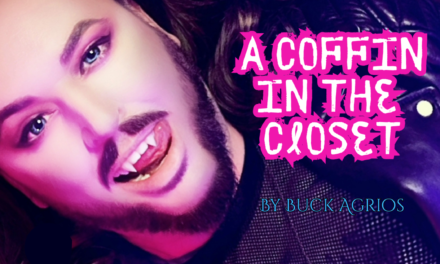
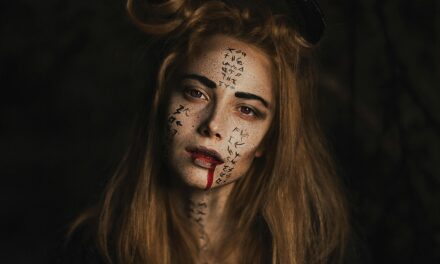



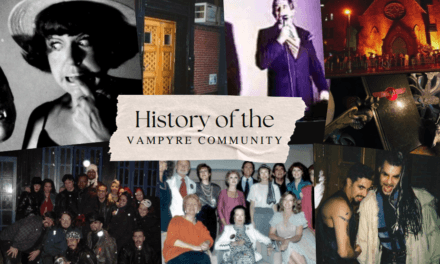
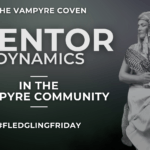





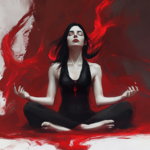

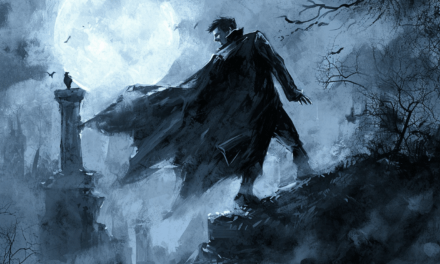

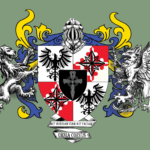
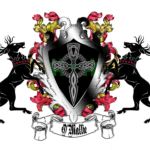



Recent Comments